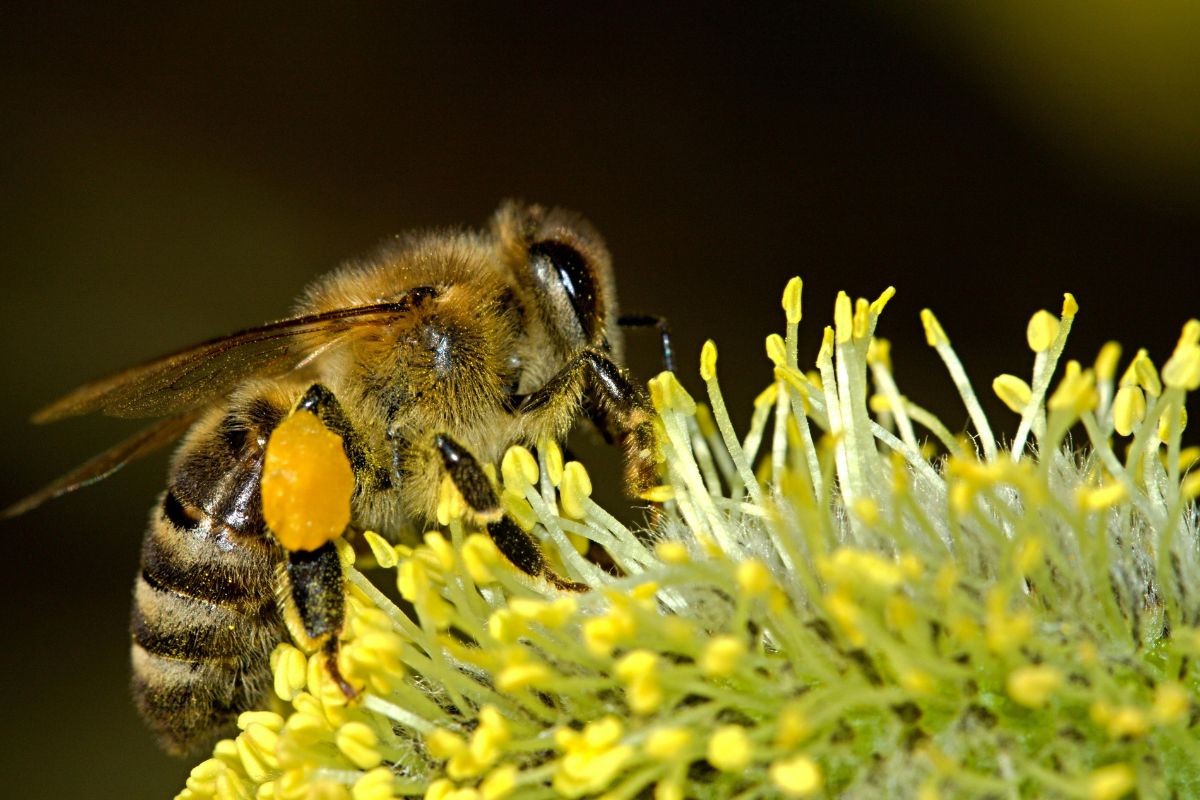Cell phones play key role in decline of bees
According to Dr. Sainuddin Pattazhy, who conducted the study on bees "If towers and mobile phones further increase, honey bees might be wiped out in 10 years."
“The bee is more honored than other animals, not because she labors, but because she labors for others.” – St. John Chrysostom

Photo: Pexels public domain pictures
Albert Einstein once remarked, “If the bee disappeared off the surface of the globe, then man would have only four years of life left.” This statement encapsulates the vital role that bees play in our world, from pollinating plants to sustaining ecosystems. Humanity’s relationship with insects is ancient and complex. While they can spread disease and wipe out crops, they are also vital to our survival on Planet Earth as pollinators and recyclers. In the case of bees, public opinion has changed in recent years, especially regarding their importance in food production.
“The bee is more honored than other animals, not because she labors, but because she labors for others.” – St. John Chrysostom
Advertisement
Bees, as pollinators, are indispensable for the growth of many crops. Concerns have been raised about the widespread use of poisons and pesticides, which can harm bee populations and disrupt ecosystems. To address this, initiatives like Bee Bricks have emerged, offering nesting places for solitary bees within urban settings. These bricks, with their irregular holes, provide safe havens for bees to lay eggs and continue their life cycles.
Advertisement
The significance of creating nesting sites for bees and birds in cities cannot be overstated. Solitary bees, unlike their hive-dwelling counterparts, establish nests in spring or summer, ensuring the next generation’s survival. Bee Bricks exemplify how simple interventions can support biodiversity and ecosystem health.
Honeybees, in particular, are renowned for their contributions to agriculture and the environment. They play a pivotal role in pollinating plants, including many of the fruits and vegetables we consume daily. Without honeybees, a significant portion of our food supply would be at risk, highlighting the interconnectedness of ecosystems on a global scale.
Interest in urban beekeeping has increased, especially since the Covid-19 pandemic. Apoorva B V from HoneyDay Bee Farms notes a rise in people’s interest in preserving the environment through beekeeping.
Urban beekeeping is accessible and low-maintenance. Regular checks and basic precautions can ensure hive health. Training programs, like those offered by Under The Mango Tree, provide valuable knowledge for aspiring beekeepers.
Apiculture is gaining importance in Indian cities to save honeybees due to urbanization’s habitat loss, declining bee populations threatening food security, economic opportunities in beekeeping, and its role in raising awareness about bee conservation and environmental stewardship among urban residents.
Beyond pollination, honeybees produce honey and beeswax, adding value to agricultural systems and supporting local economies. Their complex social structures, with worker bees, a queen, and drones, showcase nature’s intricate balance and cooperation within colonies.
Despite their importance, honeybee populations have faced challenges, such as colony collapse disorder, leading to concerns about their long-term survival. Efforts to protect bees and promote bee-friendly practices, such as planting bee-friendly flowers, avoiding pesticides, and supporting local beekeepers, are crucial steps towards safeguarding these essential pollinators.
In conclusion, bees are not just insects; they are guardians of our ecosystems, sustaining life through pollination and contributing to biodiversity. Recognizing and supporting their role is key to ensuring a sustainable future for our planet and generations to come.
Advertisement